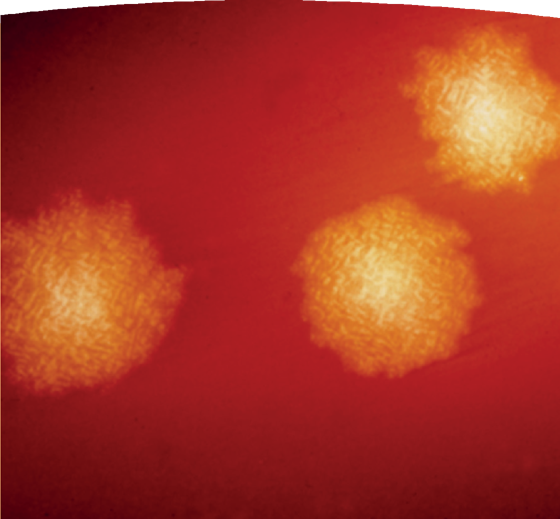For patients and carers
What is clostridium difficile (c. diff)?
It is a bacteria that normally lives in the intestine (gut). Up to 5% of the population are thought to carry this without any problems. It is usually kept in check by the good bacteria in the intestines which are normally present in the gut.
Causes of c.diff
Spores are produced when c.diff bacteria encounter unfavourable conditions, such as being outside the body. Spores from the c.diff bacteria can be passed out of the human body in faeces.
Spores can survive for a long time in the environment and then be transported on hands that have direct contact with infected patients or surfaces such as floors, bedpans, toilets etc. They are very hardy bacterium and can survive on clothes and surfaces for long periods.
The c.diff bacteria do not usually cause any problems in healthy people. However, some antibiotics can interfere with the balance of the ‘good bacteria’ in the gut. When this happens, c.diff bacteria can multiply and produce toxins. The toxins can cause symptoms such as abdominal cramps and diarrhoea.
Diagnosis
Diagnosis is made by sending a sample of diarrhoea to the microbiology laboratory.
How can it be treated?
If you are currently taking prescribed antibiotics they will be reviewed. You will be prescribed some new antibiotics such as metronidazole or vancomycin which are more effective against the c.diff bacteria.
How do we prevent spread
When you have c.diff you excrete large numbers of bacteria in liquid faeces, these can contaminate the environment around you, such as your bed table, locker and commode. Light switches and door handles are easily contaminated by staff and visitors who have not washed their hands thoroughly after being in close proximity.
The c.diff spores can survive for a long time in the environment, so it is important that care is taken so the infection is not passed on from person to person.
Patients who have diarrhoea are usually nursed in a single room. Staff who care for you will wear Personal Protective Equipment (disposable gloves and apron).
Personal hygiene must be very strict. Everyone must wash their hands with antimicrobial foam wash and dry thoroughly before eating, and after going to the toilet. Do not be afraid to ask staff to help you to clean your hands if you cannot clean your hands yourself.
You will remain infectious while you have diarrhoea. Once the diarrhoea symptoms have stopped, it is advisable to wait for at least 48 hours from the time you produce a normal stool before you can resume normal activities.
You may find that you continue to have a loose stool for a while. This is normal and should not be mistaken for diarrhoea. Most people do not suffer any lasting effects. However, relapses are not uncommon.
Personal laundry
We do not routinely wash personal laundry, however if your laundry is going to be sent home it will be placed in a patient alginate clothing bag to prevent cross infection.
The alginate bag can be put directly into the washing machine. Your clothes should be washed separately on the highest temperature recommended by the clothing manufacturer using your usual washing detergent.
Can I have visitors, are they at risk?
C.diff does not normally present a risk of infection to the general public. Visitors who are taking antibiotics or visitors with other underlying diseases may be at risk. If you have any concerns regarding someone visiting, ask advice from the nursing team. It is not advisable for children under 12 years of age to visit.
Visitors do not need to wear gloves and aprons. It is important that all visitors wash their hands with antimicrobial foam wash and dry thoroughly with the disposable paper towels provided.
Please do not allow your visitors to sit or lie on your bed or use your en-suite facilities.

